
The Commodore 64, also known as the C64, is an 8-bit home computer introduced in January 1982 by Commodore International. It has been listed in the Guinness World Records as the highest-selling single computer model of all time, with independent estimates placing the number sold between 12.5 and 17 million units. Volume production started in early 1982, marketing in August for US$595. Preceded by the VIC-20 and Commodore PET, the C64 took its name from its 64 kilobytes(65,536 bytes) of RAM. With support for multicolor sprites and a custom chip for waveform generation, the C64 could create superior visuals and audio compared to systems without such custom hardware.
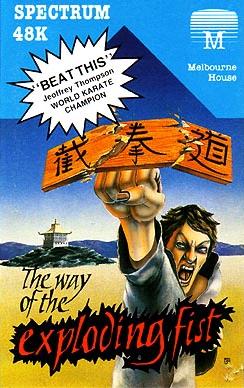
The Way of the Exploding Fist is a 1985 fighting game based on Japanese martial arts developed by Beam Software, by a team consisting of Gregg Barnett, Bruce Bayley, Neil Brennan and David Johnston. Originally developed on the Commodore 64 and published in May 1985 by Melbourne House, ports were made for Amstrad CPC, ZX Spectrum, BBC Micro, Acorn Electron and Commodore 16.
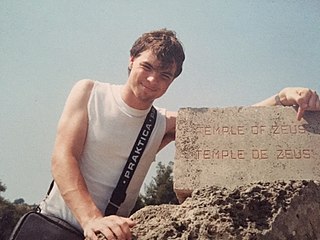
Martin Galway is one of the best known composers of chiptune video game music for the Commodore 64 and the ZX Spectrum. His works include Rambo: First Blood Part II, Comic Bakery and Wizball's scores, as well as the music used in the loader for the C64 version of Arkanoid.
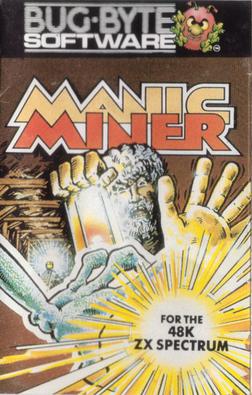
Manic Miner is a platform video game written for the ZX Spectrum by Matthew Smith. It was published by Bug-Byte in 1983, then later the same year by Software Projects. The first game in the Miner Willy series, the design was inspired by Miner 2049er (1982) for the Atari 8-bit family. Retro Gamer called Manic Miner one of the most influential platform games of all time, and it has been ported to numerous home computers, video game consoles, and mobile phones.

Raid on Bungeling Bay is a shoot 'em up video game developed by Will Wright and published by Broderbund for the Commodore 64 in 1984. It was the first video game designed by Will Wright. The Commodore 64 version was published in the UK by Ariolasoft. The game inspired Wright to develop SimCity in 1989.

Road Runner is a racing video game based on the Wile E. Coyote and Road Runner shorts. It was released in arcades by Atari Games in 1985.

Paperboy is an arcade action game developed and published by Atari Games and Midway Games, and released in 1985. The player takes the role of a paperboy who delivers a fictional newspaper called The Daily Sun along a suburban street on his bicycle. The arcade version of the game featured bike handlebars as the controller.

Krome Studios Melbourne, originally Beam Software, was an Australian video game development studio founded in 1980 by Alfred Milgrom and Naomi Besen and based in Melbourne, Australia. Initially formed to produce books and software to be published by Melbourne House, a company they had established in London in 1977, the studio operated independently from 1987 until 1999, when it was acquired by Infogrames, who changed the name to Infogrames Melbourne House Pty Ltd.. In 2006 the studio was sold to Krome Studios.
Hewson Consultants were one of the smaller software companies which produced video games for home computers in the mid-1980s. They had a reputation for high-quality games which continually pushed the boundaries of what the computers were capable of and can be compared favourably with other ground-breaking software houses like Ultimate Play the Game and Beyond. Fourteen of their games were awarded "Megagame" by Your Sinclair.
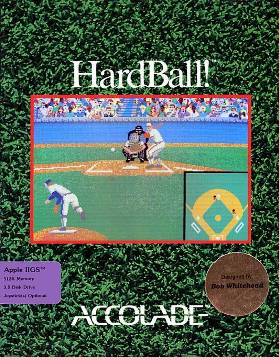
HardBall! is a baseball video game published by Accolade. Initially released for the Commodore 64 in 1985, it was ported to other computers over the next several years. A Sega Genesis cartridge was published in 1991. HardBall! was followed by sequels HardBall II, HardBall III, HardBall IV, HardBall 5, and HardBall 6.

Winter Games is a sports video game developed by Epyx, based on sports featured in the Winter Olympic Games.

Bomb Jack is a platform game published by Tehkan for arcades in and later ported to home systems. The game was a commercial success for arcades and home computers. It was followed by several sequels: the console and computer game Mighty Bomb Jack, the arcade game Bomb Jack Twin, and Bomb Jack II which was licensed for home computers only.

International Soccer, also known as International Football is a sports video game written by Andrew Spencer for the Commodore 64 and published by Commodore International in 1983. Originally only available on cartridge, CRL re-released the game on cassette and disc in 1988.
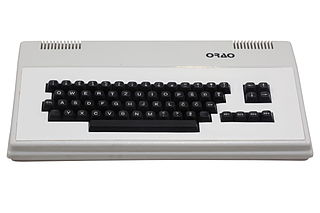
Orao was an 8-bit computer developed by PEL Varaždin in 1984. Its marketing and distribution was done by Velebit Informatika. It was used as a standard primary school and secondary school computer in Croatia and Vojvodina from 1985 to 1991.
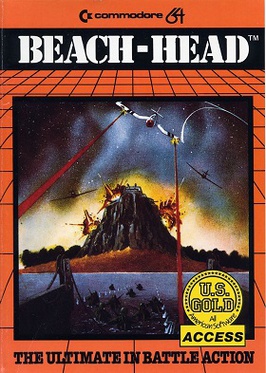
Beach-Head is a video game developed and published in 1983 by Access Software for the Atari 8-bit family and Commodore 64 home computers in the US. Versions for the ZX Spectrum, BBC Micro, and Acorn Electron were published in Europe by U.S. Gold in 1984, followed by versions for the Amstrad CPC, Commodore 16 and Plus/4 in 1985.
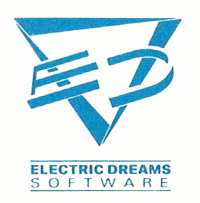
Electric Dreams Software was a UK-based video game publisher established in 1985 by Activision and run by Rod Cousens and Paul Cooper formerly of Quicksilva. The company published video games for the ZX Spectrum, Commodore 64, Amstrad CPC and the Atari 8-bit family of computers between 1985 and 1989, becoming one of the top eight UK software houses of that decade.
Personal Software Services (PSS) was a British software company based in Coventry, founded by Gary Mays and Richard Cockayne in 1981. The company was acquired by Mirrorsoft in 1987. PSS produced video games for the ZX Spectrum, Commodore 64, Amiga, Atari ST, Atari 8-bit family, Amstrad CPC, Oric and IBM PC compatibles.
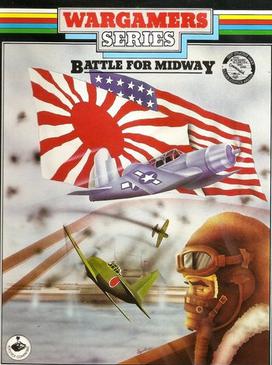
The Battle for Midway is a turn-based strategy video game developed and published by Personal Software Services. It was first released in the United Kingdom and France for the MSX in 1984, and was re-released for the Amstrad CPC, Commodore 64 and ZX Spectrum in 1985. It is the second instalment of the Strategic Wargames series. The game is set during the Battle of Midway in the Pacific Ocean theatre of World War II and revolves around the United States Navy attacking a large Imperial Japanese fleet stationed at Midway Atoll, in retaliation for the attack on Pearl Harbor.
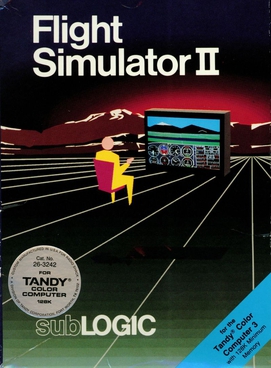
Flight Simulator II is a video game written by Bruce Artwick and published by Sublogic as the sequel to FS1 Flight Simulator. It was released in December 1983 for the Apple II, in 1984 for Atari 8-bit and Commodore 64, in 1986 for the Amiga and Atari ST, and in August 1988 for the Color Computer 3.

















